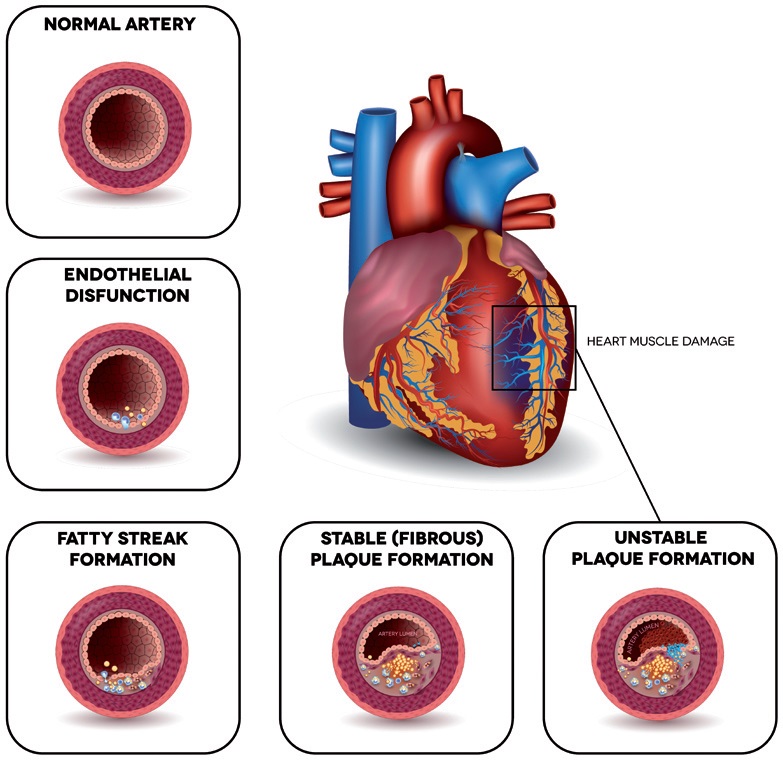Angina symptoms are triggered by factors that increase oxygen demand. This is typically increased physical effort or exertion.
Additional triggers include emotional or physical stress, eating a large meal or extremes of temperature. Walking into wind or first contact with cold air after leaving a warm room can trigger an attack.
Nocturnal angina can be triggered by a dream that causes significant changes in respiration rate, blood pressure and heart rate.5
Patients should be advised of potential trigger factors, this will enable them to identify their own triggers and avoid further episodes of symptoms.1
Progression of atherosclerosis

